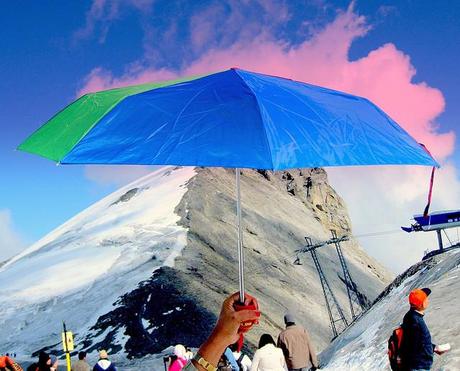Is Global Warming Real?
Global warming is a hot topic these days. Debate over global warming has been going all around the world. While few consider as it biggest challenge of all times, others consider it as a climate shift that occurred in early 90’s and have fallen flat since then. Those who believe it have their own scientific reasons to back their claims, others have their own reasons to disregard their theory. Understanding global warming and its impact is important to meet the challenges pose by it.
If you want to start a lively conversation going the next time you are out among friends, ask if people think global warming is real. It is a hot button issue for many and the arguments for and against global warming can be confusing as they may appear to use the same data to prove different results. Here are the top 5 arguments for and against global warming.

Global Warming is Real
Scientists who argue for global warming being real base most of their evidence on the interpretation of the change in the levels of gases in the atmosphere and the ocean. The actual warming of temperature is something they say they can document, but the primary evidence is drawn from detecting what precedes a temperature rise – the change, and effect of atmospheric gases on the Earth’s environment.
- Argument 1 – Rise in Sea Level – Sea level is rising in many areas of the world. This is partially attributed to the melting of ice caps and glaciers, but more to the changes in the gases contained within the sea. In the past decade, the global mean sea levels have doubled compared to the 20th century trend of 1.6 mm per year. The global sea levels rose about 6.7 inches in the last century.
- Argument 2 – Rise in Earth’s Average Temperature – Global temperature rise during past century and half continues. Tracking global atmospheric temperatures since the 1800s, scientists point to a steady rise with a stronger period in the 70s, lull in the 90s and a return to the rising pattern in the 2000s.
- Argument 3 – Rise in Ocean Temperature – The rise in the number of vehicles and industries has resulted in greenhouse gases getting trapped in the atmosphere. The increased heat in the atmosphere have been absorbed by the oceans. There is over 50 years of documented temperature records for the oceans that have recorded a steady rise in its temperature since 1969.
- Argument 4 – Shrinking Glaciers – The glaciers on several mountain ranges, particularly in Greenland and Antarctica, are decreasing in size due to reduction in gases that help to maintain temperatures, and changes in the regions climate. Studies conducted by NASA’s Gravity Recovery and Climate Experiment show Greenland lost 36 to 60 cubic miles of ice every year between 2000 and 2006.
- Argument 5 – Ocean Acidification – Acid level in ocean is increasing which is making the oceans of the world more acidic. This is due to emission of more harmful gases in the atmosphere by humans which is getting absorbed by the oceans. This is resulting in an increase of algae blooms and mass fish deaths, as well as a change to the chemical composition of the water.

Global Warming isn’t Real
Many scientists make a strong case against global warming being real. They often look towards the same evidence as those in favor of proving its existence, but draw different conclusions. They also look at some evidence not considered in other arguments. These scientists hold to a strict definition of global warming as being defined as a rise in atmospheric temperature, they do not consider the atmospheric precursors as valid evidence.
- Argument 1 – No Significant and Prolonged Temperature Changes Since 1997 – Scientists who argue against global warming say global warming isn’t real because since the 90s there hasn’t been a significant temperature change. The upswing in the temperature started from 1975, continued till 1997 and the temperature has been flat since then which clearly states that there isn’t any significant change in temperature in last 17 years.
- Argument 2 – Not Enough Historical Data Available – There is no consensus about global warming being real among scientists. Advocates also point towards the fact that a recent gathering of 31,000 scientists in the field of environmental science couldn’t reach a consensus on whether or not global warming is real. They believe that they don’t have long term historical climate data or the data they have isn’t clear.
- Argument 3 – Arctic Ice Increased by 50% Since 2012 – Arctic Ice increased in volume 50% in 2012 alone. Core measures of the Arctic Ice show that it has increased in volume since 2012, which argues against global warming causing ice caps to melt. Few people have even predicted that global warming would cause whole Arctic ice to melt which contradicts their version.
- Argument 4 – Climate Models used are Proven to be Unreliable – The climate model calculations used to predict the effect of global warming have been proven to be flawed which means that the long term predictions that they have been making are meaningless. Some scientists even argue that any increase in global temperatures could be a natural climate shift.
- Argument 5 – Early Predictions About the Effects of Warming Have Been Proven Wrong – Advocates who promote arguments against global warming being real, point towards all the dates having come and gone where predictions were made about effects that never happened. For example:- Al Gore predicted that all Arctic ice would be gone by 2013. But, on contrary Arctic ice is up by 50% since 2012.
Which Argument to Believe?
The main part of the problem lies in the two groups using different definitions of how global warming appears in the climate. This is one of the reasons that those advocating that global warming is real now use the term “climate change,” since it is more reflective of the real issue. The other problem lies in proof, and in studies that try to prove whether or not global warming is real. Contrary to public belief, the results of all scientific studies aren’t conclusive.
To be considered proof of a hypothesis, the studies have to be able to be replicated by others and produce the same results. With the global warming studies, analysis of decades of weather data is often used. The first problem is that weather data from 100 years ago wasn’t kept to modern standards of evidence. The second problem is that analysis is interpretation; you can really put any spin on it. This is why some of the arguments for and against whether global warming is real can use the same data and come to different conclusions.

